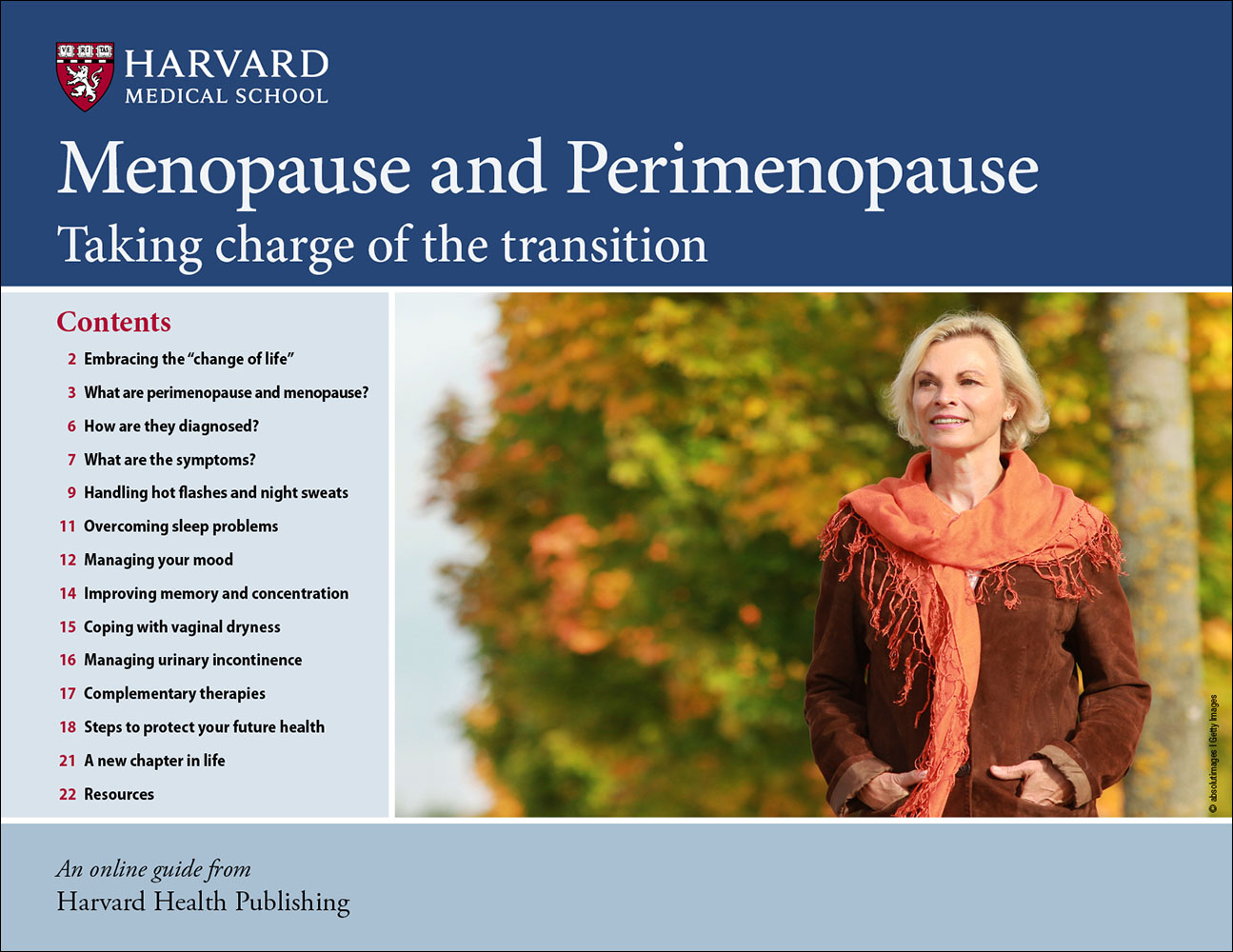Depression more likely during perimenopause than before or after
Research we're watching
- Reviewed by Toni Golen, MD, Editor in Chief, Harvard Women's Health Watch; Editorial Advisory Board Member, Harvard Health Publishing; Contributor

Women in perimenopause are significantly more likely to experience depression than either before or after this stage, a new analysis suggests.
The analysis, published July 15, 2024, in the Journal of Affective Disorders, reviewed seven earlier studies involving nearly 12,000 women to determine whether different stages of menopause were associated with varying depression risks. Participants' symptoms were measured using standardized questionnaires that gauged factors such as lack of interest in activities, sleep problems, and low mood.
Researchers found that women in perimenopause — which typically lasts for three to five years before menopause and may involve mood changes — were 40% more likely to experience depression than either premenopausal or postmenopausal women. The findings emphasize the importance of screening women for depression during perimenopause and providing necessary support, study authors said.
Image: © digitalskillet/Getty Images
About the Author

Maureen Salamon, Executive Editor, Harvard Women's Health Watch
About the Reviewer

Toni Golen, MD, Editor in Chief, Harvard Women's Health Watch; Editorial Advisory Board Member, Harvard Health Publishing; Contributor
Disclaimer:
As a service to our readers, Harvard Health Publishing provides access to our library of archived content. Please note the date of last review or update on all articles.
No content on this site, regardless of date, should ever be used as a substitute for direct medical advice from your doctor or other qualified clinician.
















